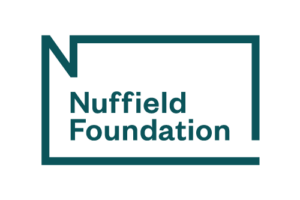Maternal well-being, infant feeding and return to paid work decisions
The project ‘Maternal well-being, infant feeding and return to paid work decisions’ is funded by the Nuffield Foundation and is being led by Professor Sarah Jewell, with co-investigators of Dr Sam Rawlings, Professor Marina Della Giusta, Professor Grace James and Professor Sylvia Jaworska. The project is supported by our research assistant Dr Fari Aftab.
About
Evidence has shown that not meeting breastfeeding goals has a detrimental effect on maternal well-being1. One potential barrier for continuing to breastfeed for as long as a mother and/or child wishes to is return to work. At the heart of this study is an exploration of the well-being, opportunities and experiences of new mothers who want to continue to breastfeed on return to paid work. It is focussed on investigating the lived realities of return to paid work on the decision making and well-being (mental health and subjective well-being) of this particular group of working mothers. The research fills a gap in UK knowledge by helping us better understand underpinning societal attitudes, legal frameworks and other obstacles that may shape decisions in this context and to explore the impact of these on the well-being of working mothers. This project will provide a better understanding of infant feeding decisions, the potential conflict with return to paid work, experiences across UK sub-groups (e.g. considering age, education, socio-economic status, and ethnicity); and the resulting impact of these decisions on maternal well-being. It will help identify weaknesses and areas of good workplace practice to inform polices and practice to support breastfeeding with the aim of improving maternal well-being.
For brevity we use the terms breastfeeding, women and mothers, and because most individuals who breastfeed identify as women and mothers. However we recognise not all individuals. that breastfeed or chestfeed identify as women and mothers.
The project consists of the following stages:
| Stage 1 | We are currently analysing UK secondary data to understand, using a representative UK sample, the relationship between infant feeding decisions and return to work decisions, and the resulting impact on maternal mental well-being. |
| Stage 2 | We funded a 2022 British Social Attitudes Survey module to explore societal attitudes to breastfeeding, breastfeed and paid work, and what the role of employers should be. |
| Stage 3 | We ran an an online survey of mothers who have given birth since 2018, and are based in the UK, to obtain richer information on infant feeding, return to work decisions and in particular workplace experiences. |
| Stage 4 | To understand experiences, motivations, decisions and impact on well-being in more detail we conducted interviews and focus groups with mothers in Summer and Autumn 2023. |
| Stage 5 | To understand workplace policies and attitudes, and what works and what doesn’t work, we ran a survey of HR professionals and are planning a survey of line managers in April/May 2024. We would also like to collect examples of existing good workplace practice and undertake organisational case studies. We anticipate we will start this stage in Summer 2024. |
1 Brown, A. (2019). Why breastfeeding grief and trauma matter, Pinter and Martin.
The Nuffield Foundation is an independent charitable trust with a mission to advance social well-being. It funds research that informs social policy, primarily in Education, Welfare, and Justice. It also funds student programmes that provide opportunities for young people to develop skills in quantitative and scientific methods. The Nuffield Foundation is the founder and co-funder of the Nuffield Council on Bioethics, the Ada Lovelace Institute and the Nuffield Family Justice Observatory. The Foundation has funded this project, but the views expressed are those of the authors and not necessarily the Foundation. Visit www.nuffieldfoundation.org

